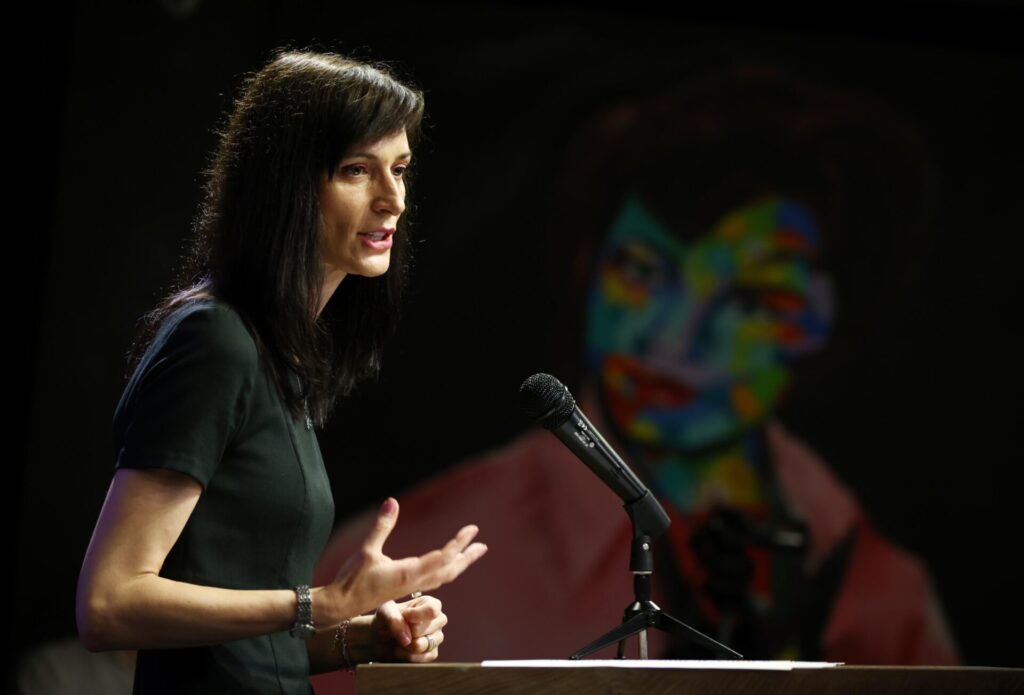 Have the article read by OpenAI (Beta). Please note that AI translations may take some time to process.
Have the article read by OpenAI (Beta). Please note that AI translations may take some time to process.Berlin/The Hague/Moscow/Kiev (EFE) – Denmark will deliver 19 F-16 fighter jets to Ukraine, six of them later this year, Danish Prime Minister Mette Frederiksen announced after meeting Ukrainian President Volodymyr Zelensky in Copenhagen.
Earlier in the day, acting Dutch Prime Minister Mark Rutte confirmed in the presence of Zelensky that his country would deliver F-16 fighter jets to Ukraine “as soon as possible,” once the military training of Ukrainian pilots had been completed. He did not specify how many aircraft would be delivered. Before travelling to Denmark and the Netherlands on Sunday, Zelensky was in Sweden on Saturday to discuss the delivery of Swedish-made Gripen fighter jets and the production of Cv-90s armoured vehicles with Prime Minister Ulf Kristersson.
“These F-16s will give new motivation and energy to our soldiers and civilians.”
Volodymyr Zelensky, President of Ukraine
Meanwhile, Ukraine launched a drone attack on several points in the Russian rear including Moscow on Sunday, in retaliation for Russia’s bombing of a theatre in the northern city of Chernobyl on Saturday, which killed seven civilians and injured nearly 150. (20 August)
It is necessary to continue the intensive efforts for Bulgaria’s accession to Schengen, says Mariya Gabriel
Sofia (BTA) – On the question of whether October 2023 remains a realistic deadline for Bulgaria’s entry into Schengen, the country’s Deputy Prime Minister and Minister of Foreign Affairs Mariya Gabriel said that it was necessary to continue the intensive efforts at every single level.
The Foreign Minister pointed out in an interview with Nova TV that the support of the European Commission was a great strength of Bulgaria. According to Gabriel, Bulgaria has come out of the international isolation it had fallen into during the last two years. She is convinced that the country is asserting its Euro-Atlantic path. It was a challenge for Bulgaria to speak with one voice, to address issues important to the people, she added. (20 August)

Scholz: Controls at Austrian border still “indispensable”
Salzburg – On his first official visit as German chancellor to Austria, Olaf Scholz did not raise hope that controls at the joint border would end soon. “At the moment, given the figures we know, this is indispensable,” Scholz said after his meeting with Austria’s Chancellor Karl Nehammer in Salzburg on Friday.
The conservative Austrian head of government (ÖVP), on the other hand, pointed out that the number of asylum applications had fallen in Austria this year, while it had risen in Germany. The population in the border region between the neighbouring countries had long since overcome the border through economic and family ties, Nehammer said.
In May, Germany had extended the border controls, which have been in place since 2015, for another six months. The government in Vienna is not happy with this measure; on the other hand, Austria itself controls its borders with southern and eastern neighbours. (18 August)
This is a compilation of the European coverage of enr news agencies. It is published Tuesdays and Fridays. The content is an editorial selection based on news by the respective agency.
